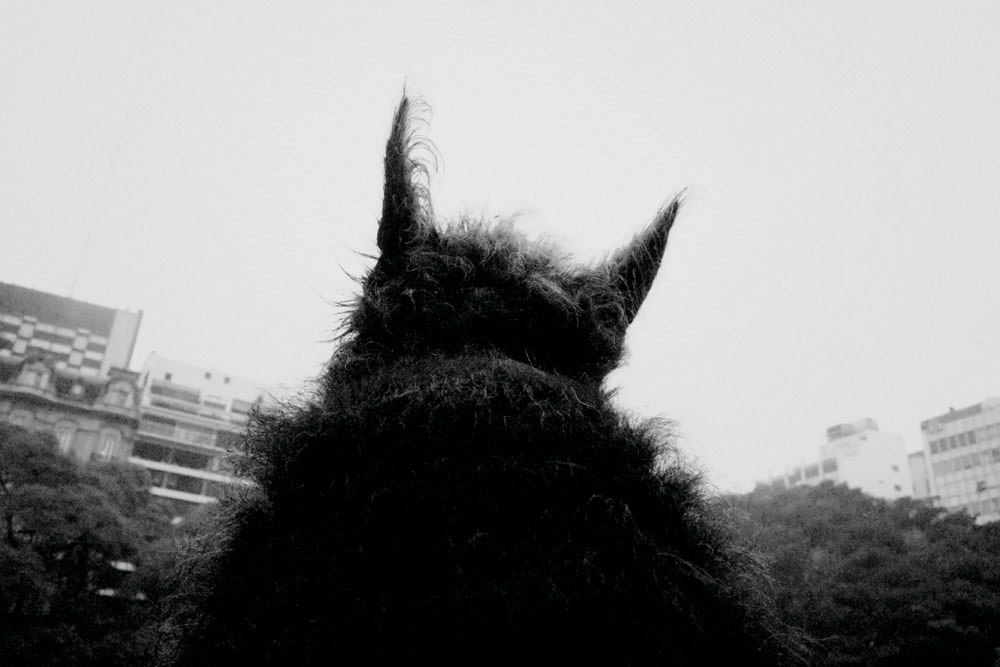Exibart Street Finalist Ova Hamer Interview
Dear Ova
first of all congratulations! You are one of the 9 finalists of the second Exibart Street Contest.
We received thousands of images from more than 100 countries all over the world, it’s an important result!
How do you feel about it?
I am extremely happy and very excited to be one of the finalists among so many great photographers from around the world.
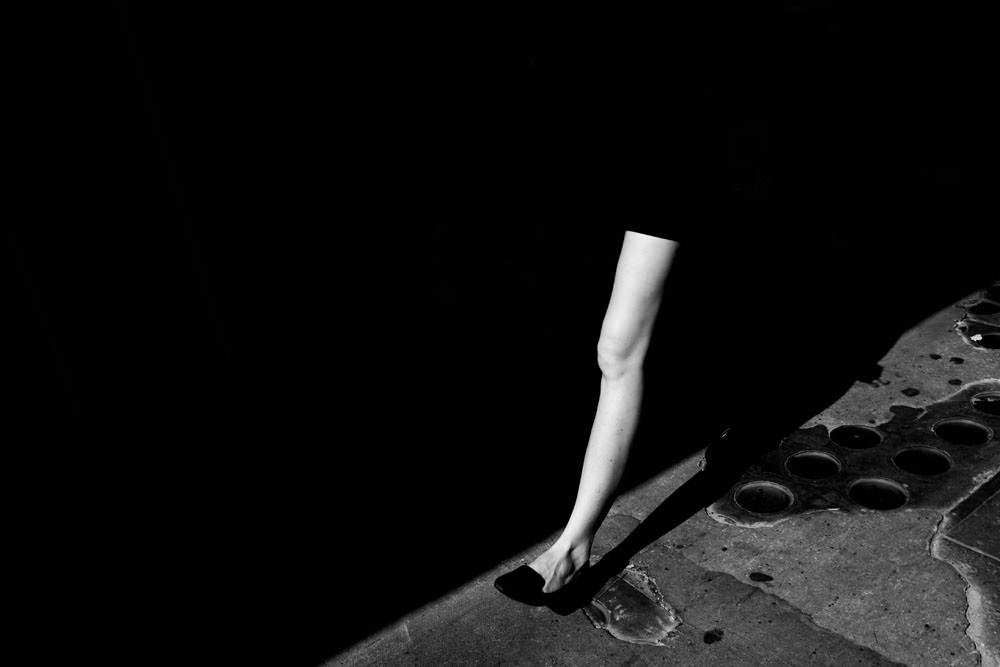
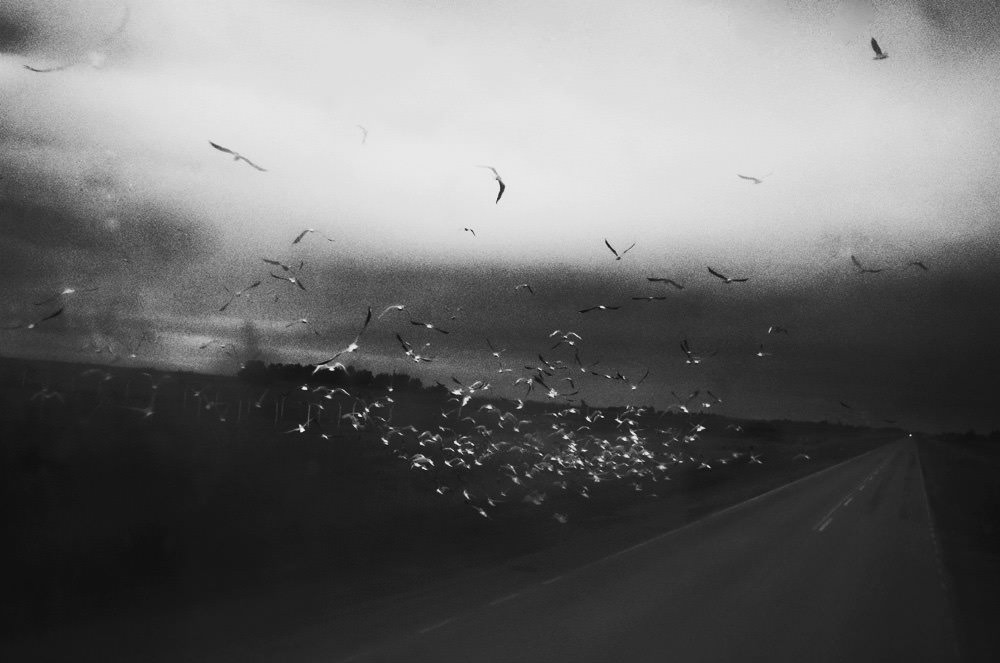
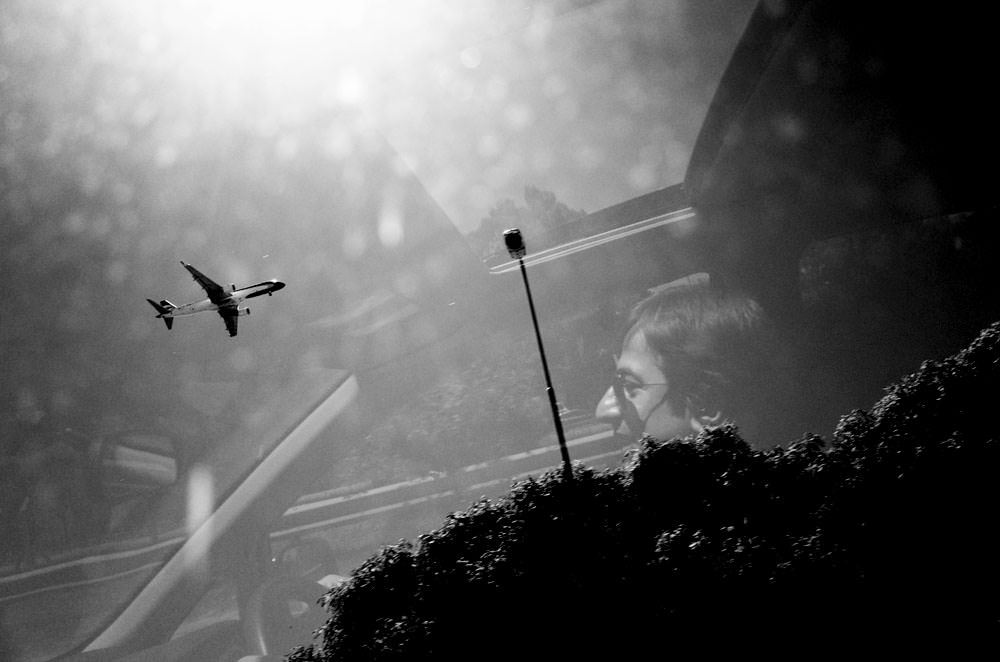
Can you tell something about yourself?
I live in the city of Buenos Aires with Gunther, my cat. I named him a tribute to Philip Kerr, the Scottish writer who died a few days before Gunther came into my home whose books I enjoyed so much. Especially the ones that had detective Bernie Gunther as the main character. Reading and taking photos are probably my two favorite things.
For several years I worked as a Production Manager for TV productions and as a writer for documentaries and advertising. Then I went into the corporate world and worked four years in an insurance company as a marketing manager. A few months ago I decided it was time for a change and here it is where I am now, somewhere along that path.
What led you to begin doing street photography in the first place?
Basically the fact that I live in central Buenos Aires, which has become a natural setting. When I first started taking pictures I didn’t know there was such a thing as “street photography”.
I found that out when I took part in the “Street Photography Now Project” in 2011, an online project that brought hundreds of photographers from all over the world together and in which, throughout a whole year, we all contributed with over 15.000 photos week by week.
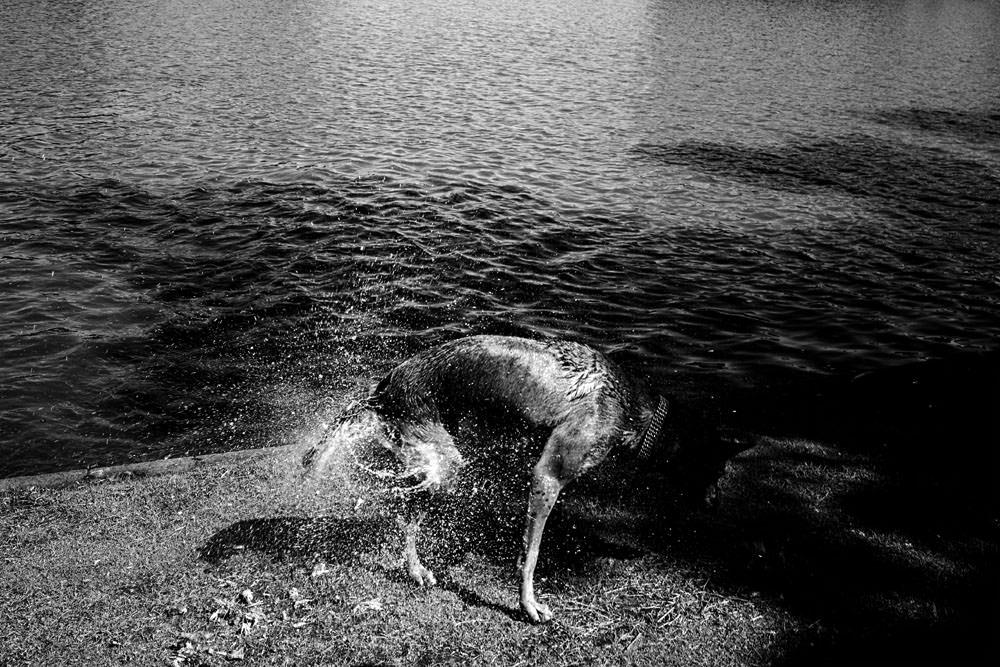
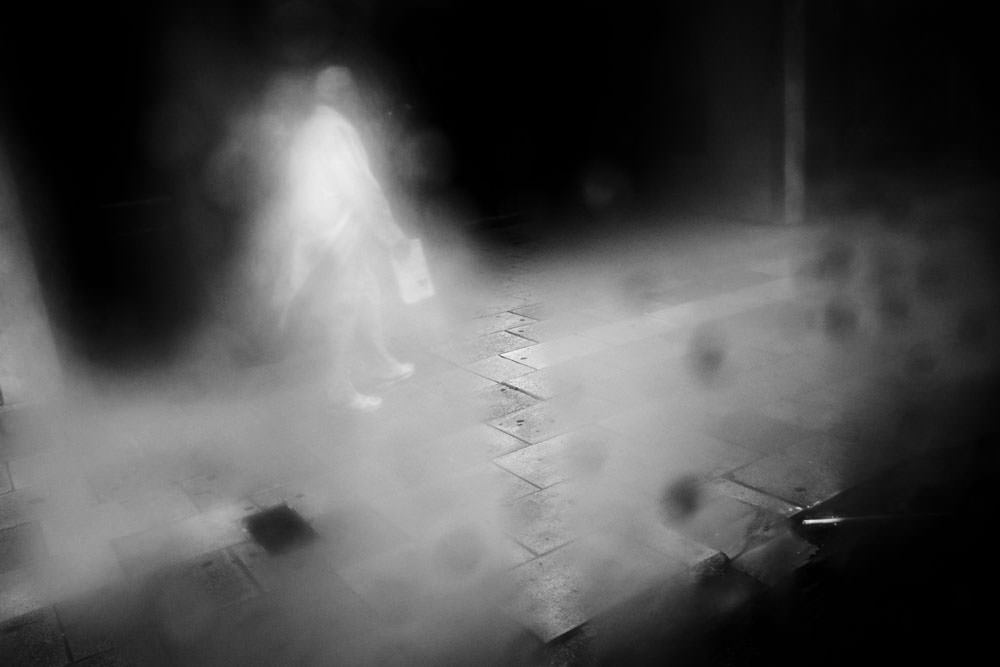
How would you define your photographic style?
I couldn’t really define a style, I don’t have enough distance from my work and I can’t really find a common denominator in my photographic work. I do have a certain fascination with the abstract, but I’m not really sure it’s something to be found all over my work, probably only partially. I am gut-driven and when something draws my attention I just click my camera. There’s not much more to it.
Have you ever studied at a photography school or are you a self-taught artist?
I studied film production and worked many years in film and TV, so that’s where my technical skills come from. But when it comes to taking a photo, what matters is the eye, what you see, your intuition that tells you that there is something “there”. And the reaction happens within seconds. Your camera has to be set so that you are ready when that moment takes place. I am not that interested in technique or looking for the technically perfect photo. Actually I often find those photographs, the “perfect” photos, a bit boring, even soulless.
What kind of equipment do you use and what role, in your opinion, does equipment have in street photography?
I have several cameras that I bought throughout many years. To me nowadays the most important feature is portability. The three cameras I usually work with are Ricoh Grll, Ricoh GRD3 and FujiXQ2. My favorite one is the GRII, it’s almost like an extension of my right hand. The equipment is relevant as a motivation to shoot photos. If that happens to you with a 6×6, that’s fine. And if, as in my case, it happens with a point and shoot, then it’s fine to go ahead with that equipment. Everyone should find the gear that will help them to have as much fun as possible.
“I don’t consider myself an artist. To me, the word “artist” includes a positive value judgment and I’m not arrogant. Many people work on certain artistic disciplines and that doesn’t necessarily make them artists.”
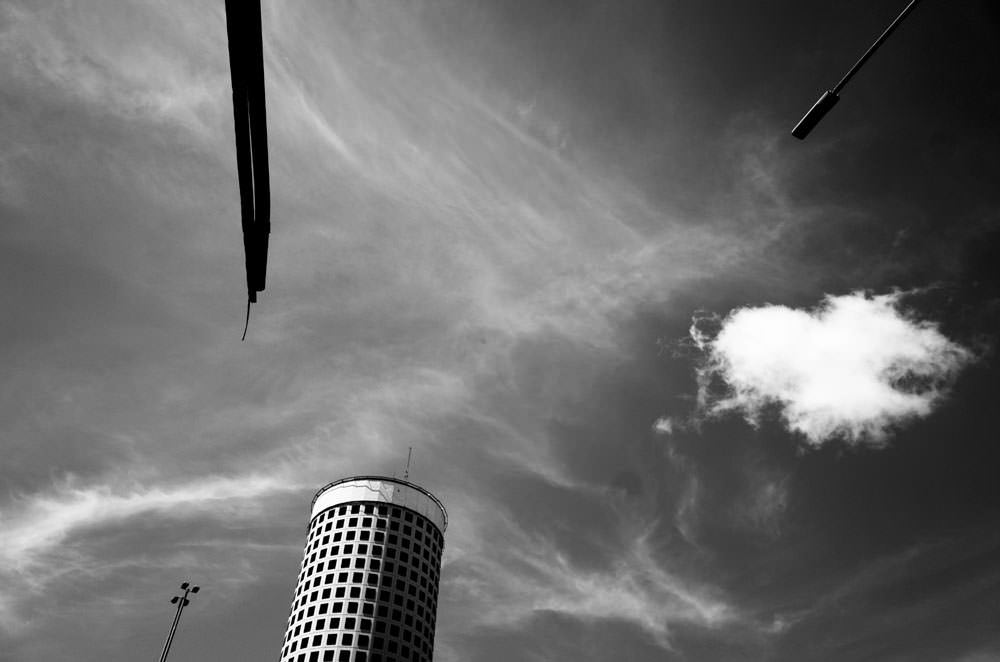
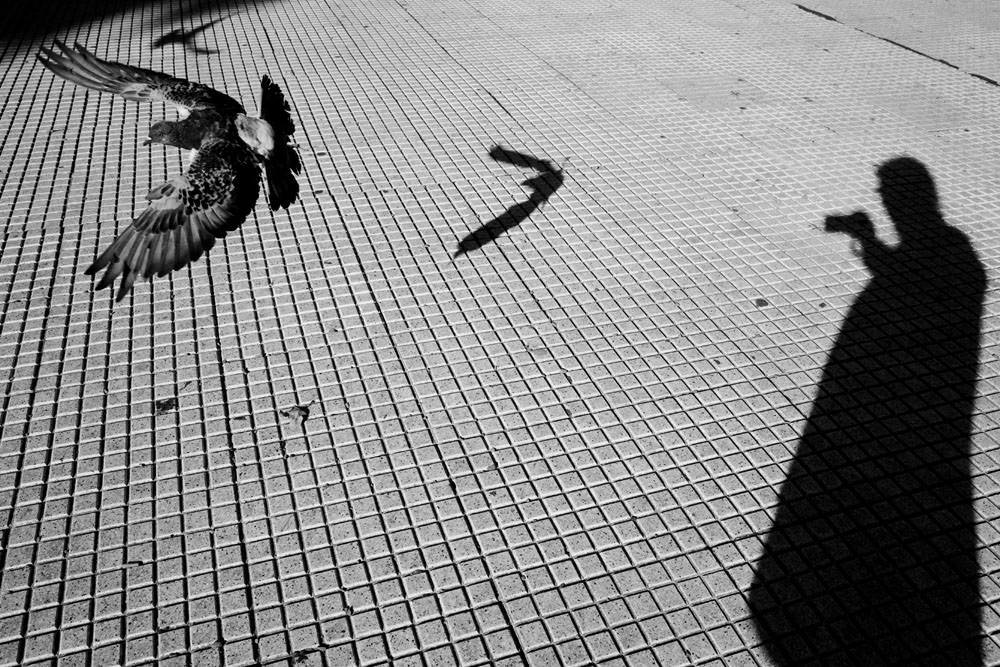
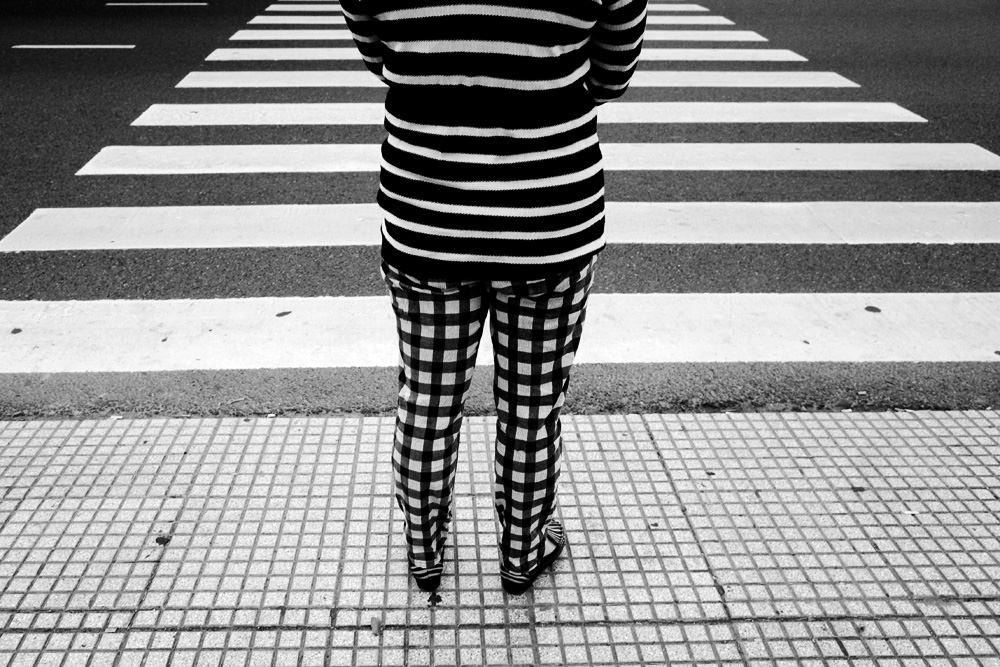
If you had to choose one lens that you would have to be using for the rest of your life, which one would that be and why?
A 28mm (or its equivalent on APSC). I have become so used to that lens that when I occasionally use another one I feel I’m being unfaithful 🙂
Do you ever do Street Photography with your smartphone?
All the pictures on my Instagram I took with my smartphone. But I would say those are urban abstractions, I don’t feel comfortable doing Street Photography with my phone. I lack fluency, it take me too long to be ready.
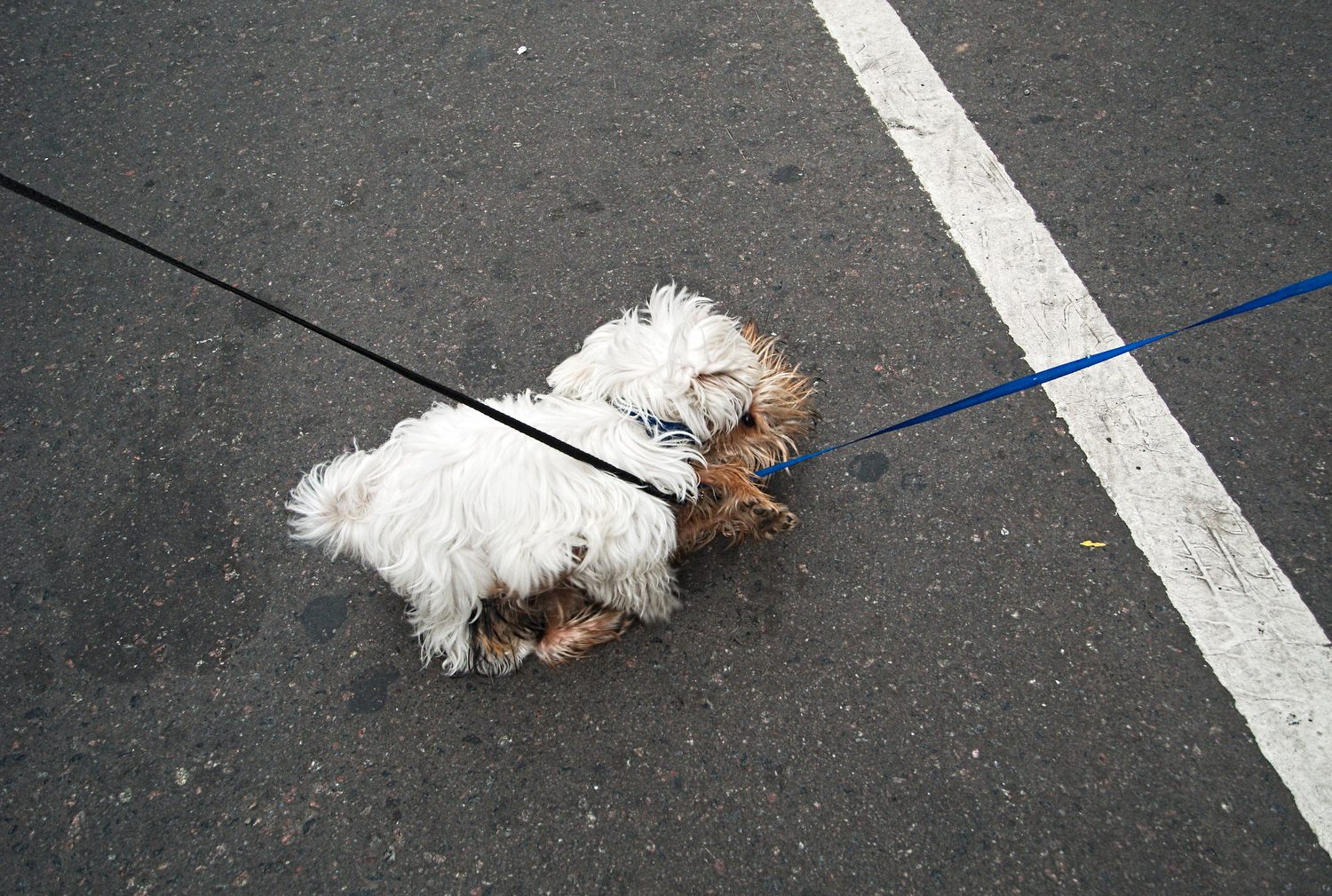
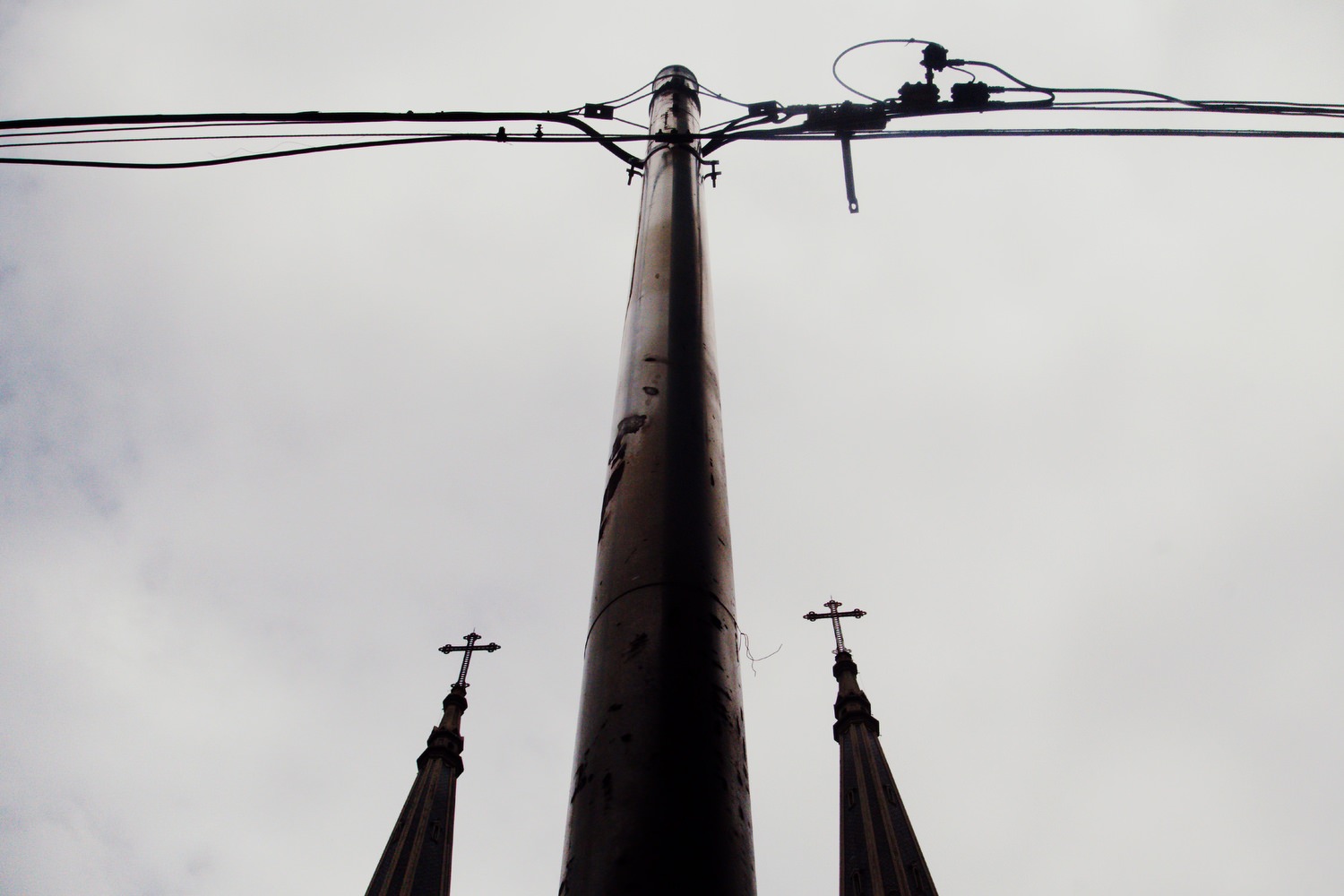
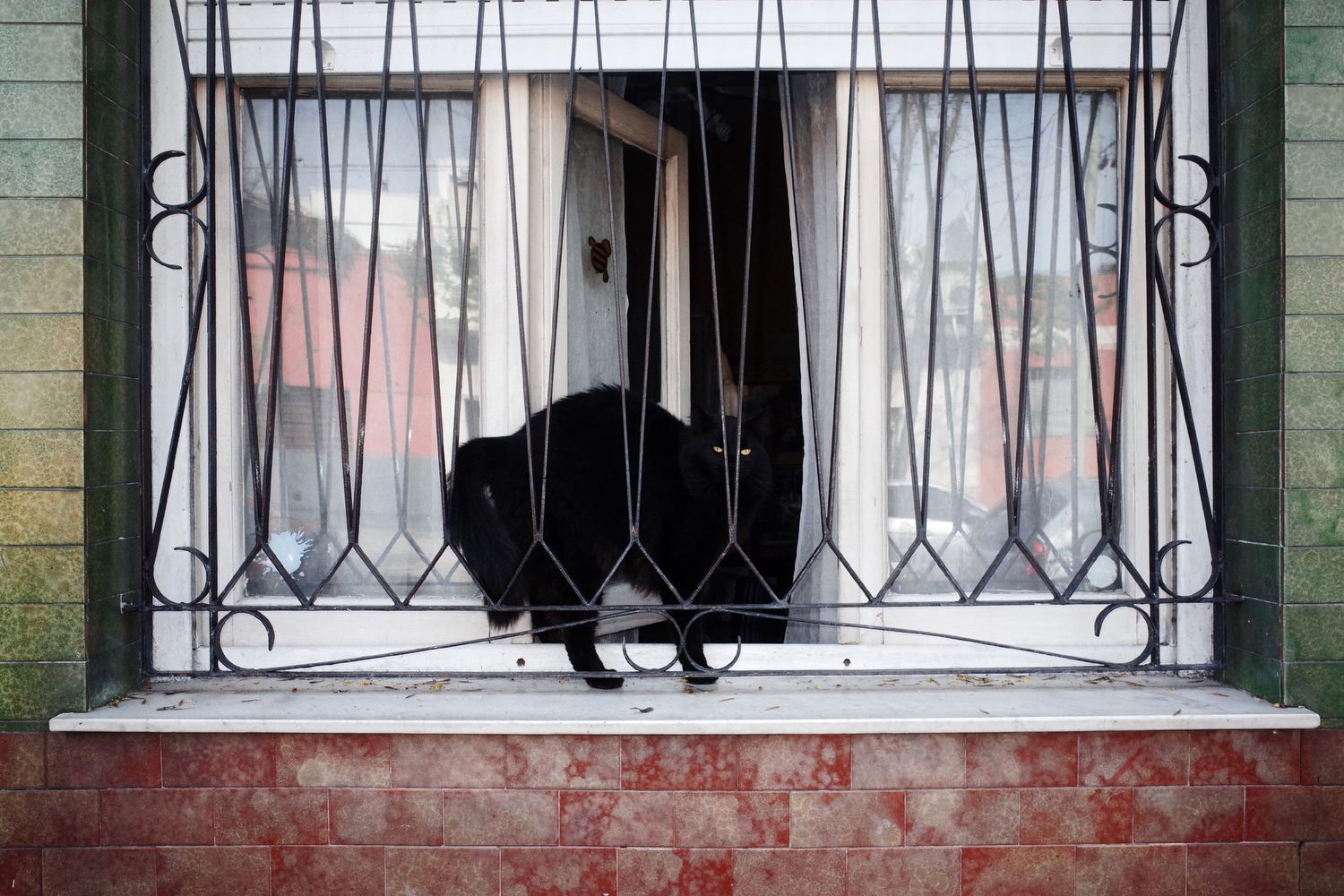
Analog and digital photography. Do you see these as alternatives to one another or the same thing?
I think they’re two different “sports” that you play with a similar ball. I don’t feel comfortable and I don’t have fun with analog photography. I have two cameras (Canon AE1 and Olympus Trip 35) but I don’t use them.
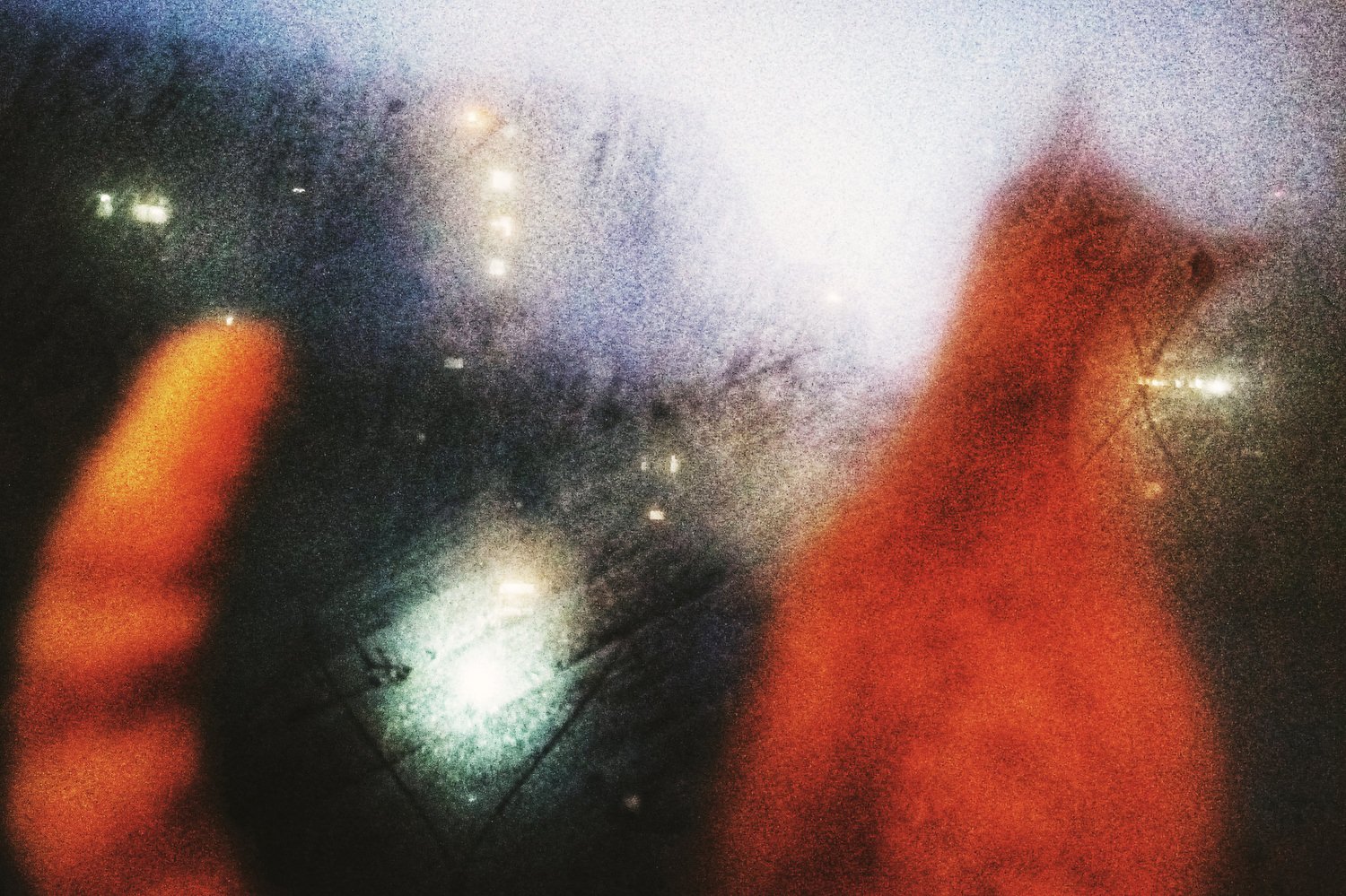
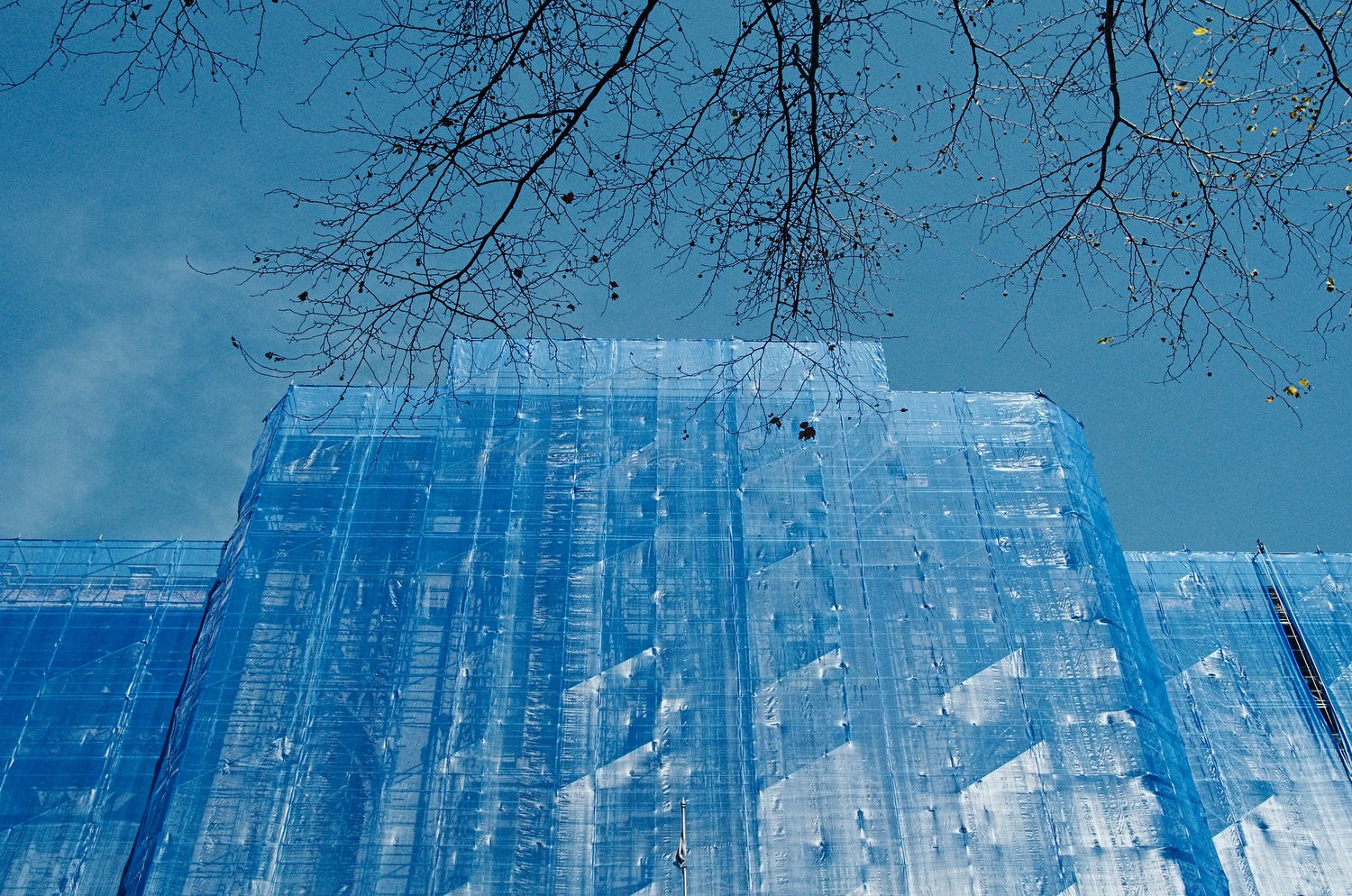
Do you ever shoot in color?
Yes, of course, and I like both. I often take photos in color and then convert them into black and white. I think that I convert the photos in two situations: first, it depends on the photograph. Some photos simply “are” in black and white. And I also do it as a reflection of my mood. Sometimes my inner mood is color and other times is black and white and that has a big influence. The finalist portfolio is in black and white and today I’m sharing photos in color.
Is there a country or a city that you like to photograph more than others?
All countries and cities are great raw material. From supercities such as Tokyo to small 10.000 inhabitant towns, such as Carhue in the middle of the Argentine Pampa are excellent places. I prefer new places I haven’t been to than places I already know. I like to be surprised.
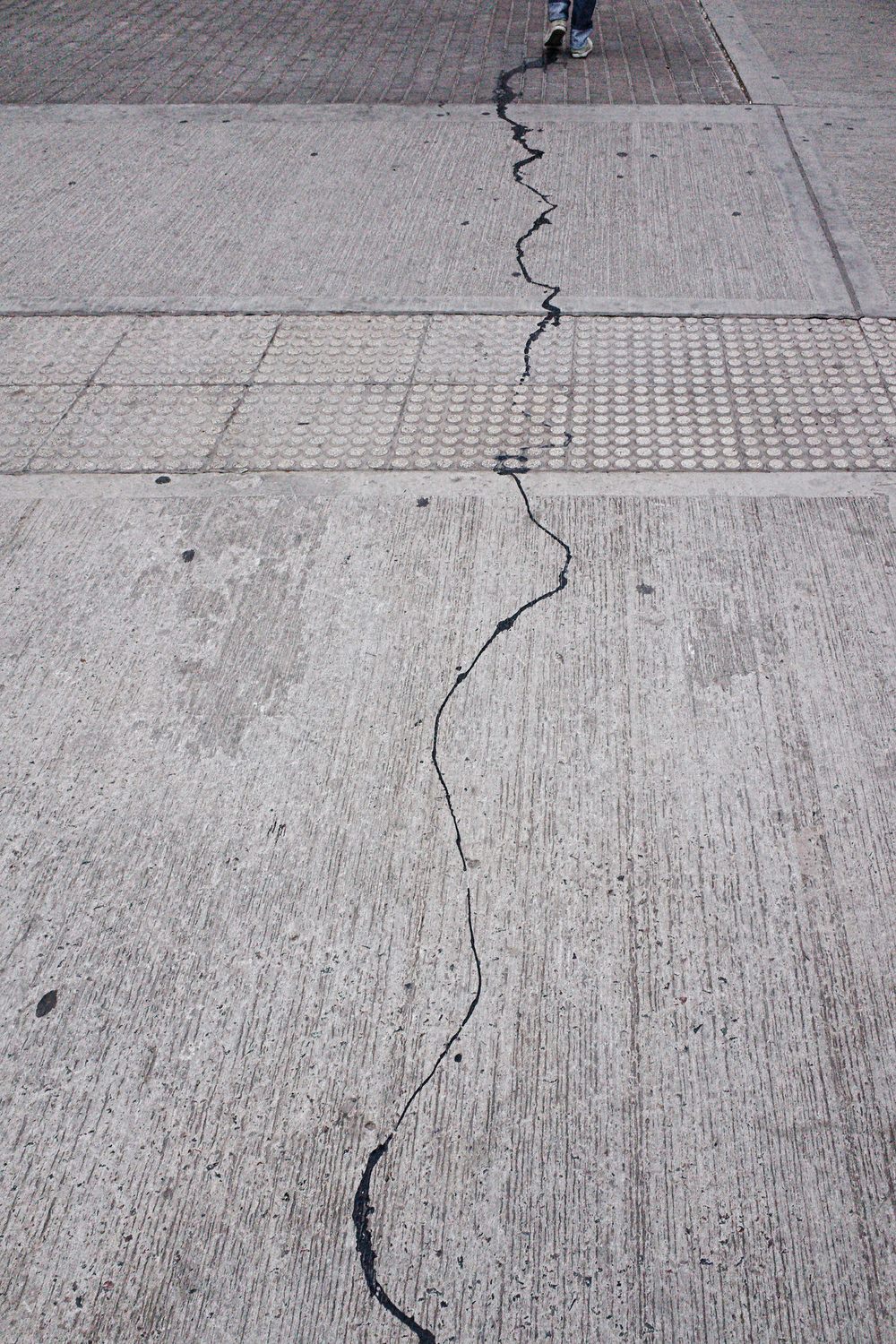
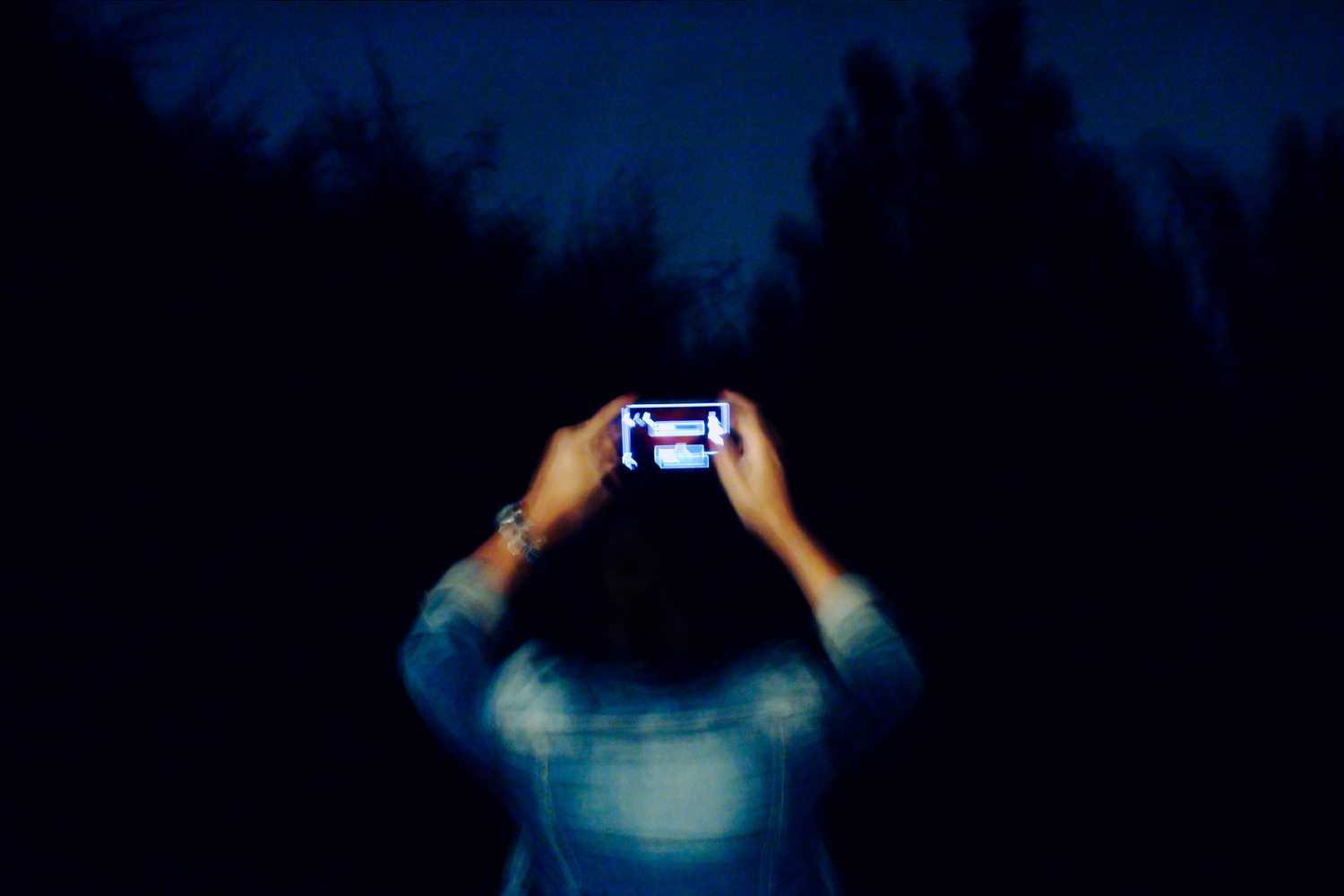
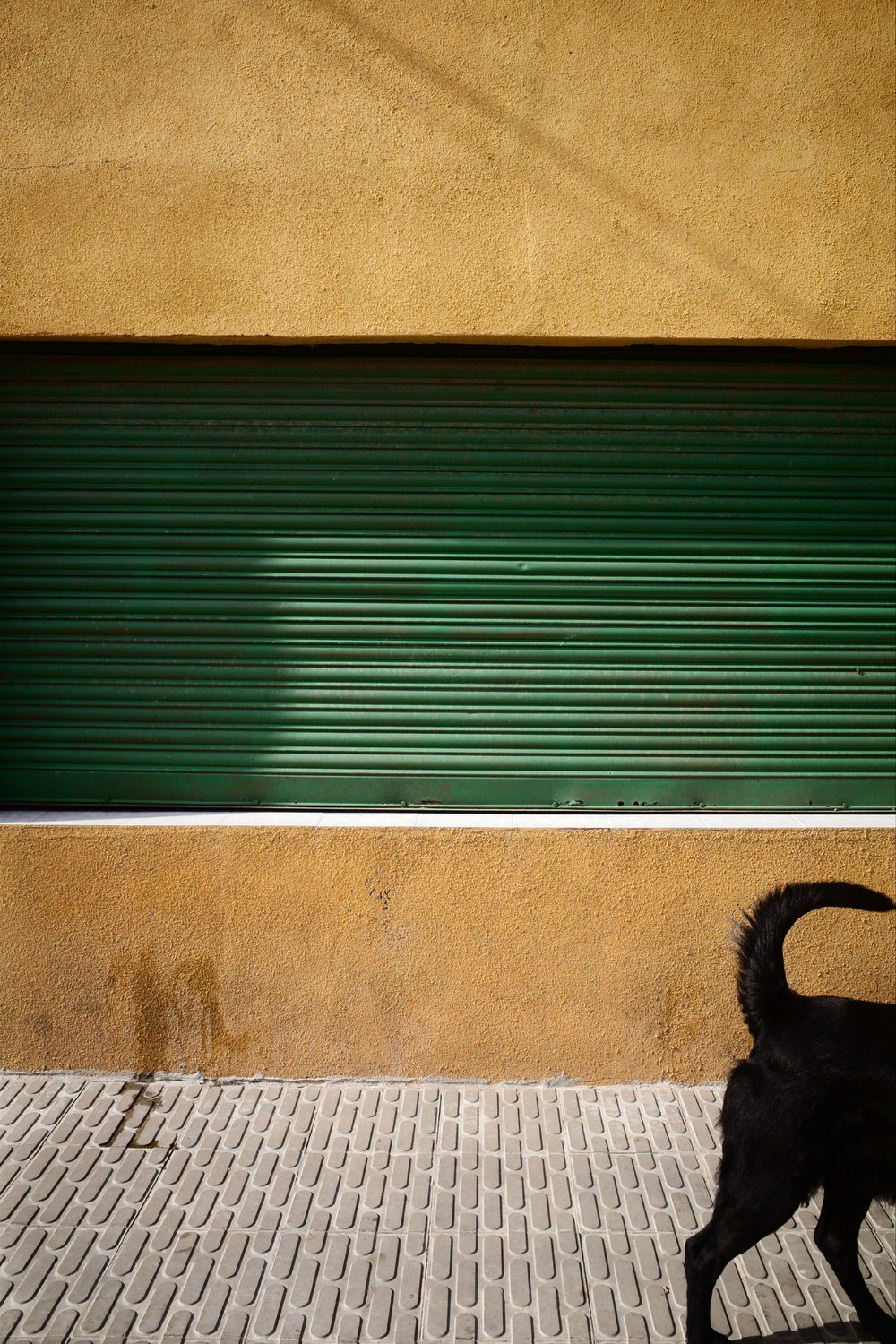
In the last couple of years street photography has grown a lot. What do you think is the reason for that?
I think that the possibility to expose your work on social media has a big role in that sort of street photography “explosion”. Also because we are now more exposed to great photos that because of their simplicity, anybody thinks they can do something similar. And that is true. Anybody can take a great picture in the street. Nothing stops you from doing that, all you need is the will, a camera, a computer for minimal processing (up until a few months ago mine was a 2007 computer), a pair of comfortable shoes and inspiration. You are your only limit. It appears to be a simple genre (if you can call it “genre”).
Shooting street photography it’s not always a simple thing, in the various situations that may arise sometimes people overreact to street photographers or sometimes some street photographers are invasive: what is your approach in street photography?
I try to act as some sort of ninja, quick and transparent. I’ve never had a problem, even though Buenos Aires can be somewhat complicated in that sense. But I always take the pictures before anyone can suspect that I’m clicking my camera. And often I have refrained from taking a photo I wanted to because there was a chance that I could get into trouble. I use common sense. I take photographs because it’s fun and I enjoy it, not because I have to prove anything. If I think someone could overreact, I don’t take the photo.
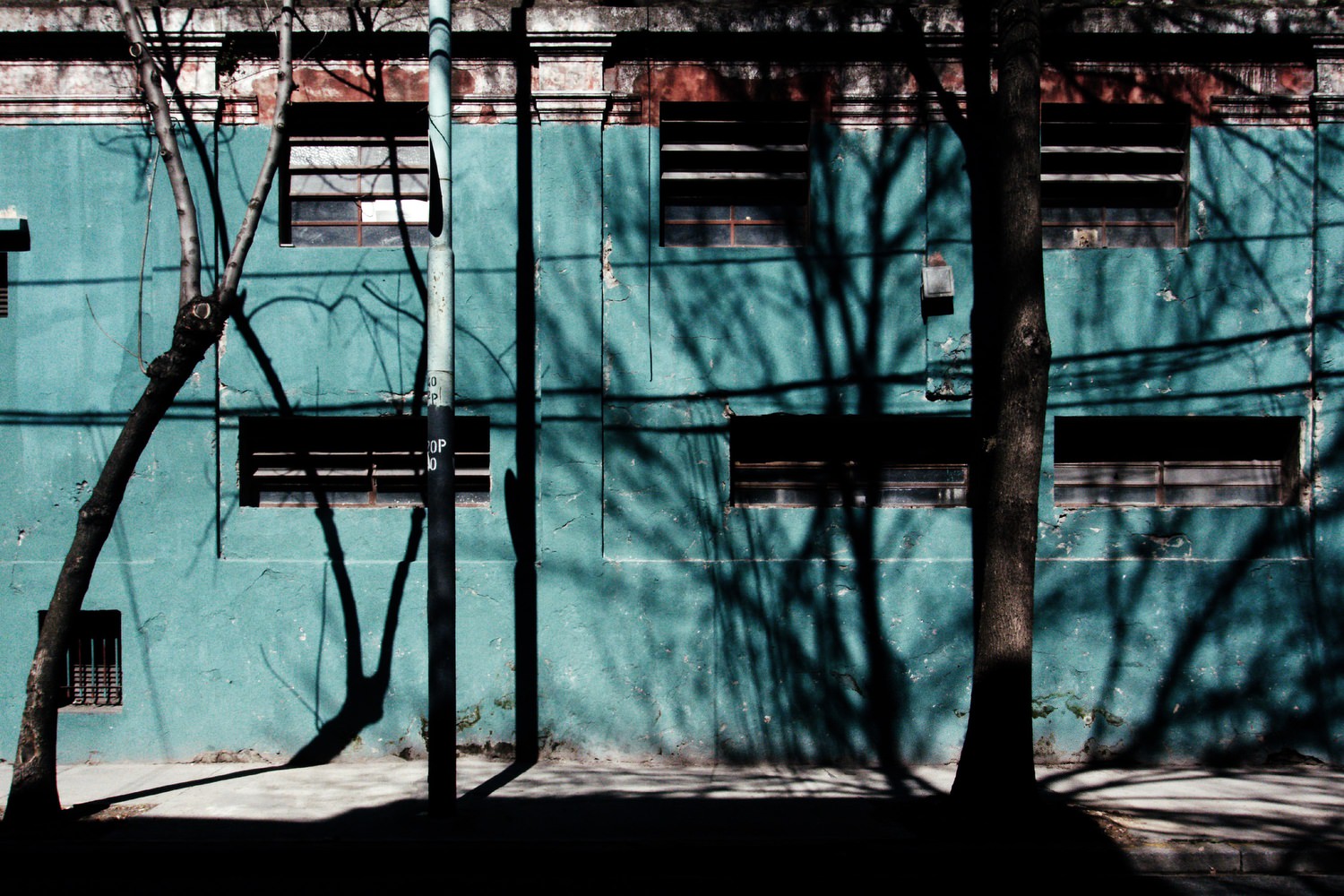
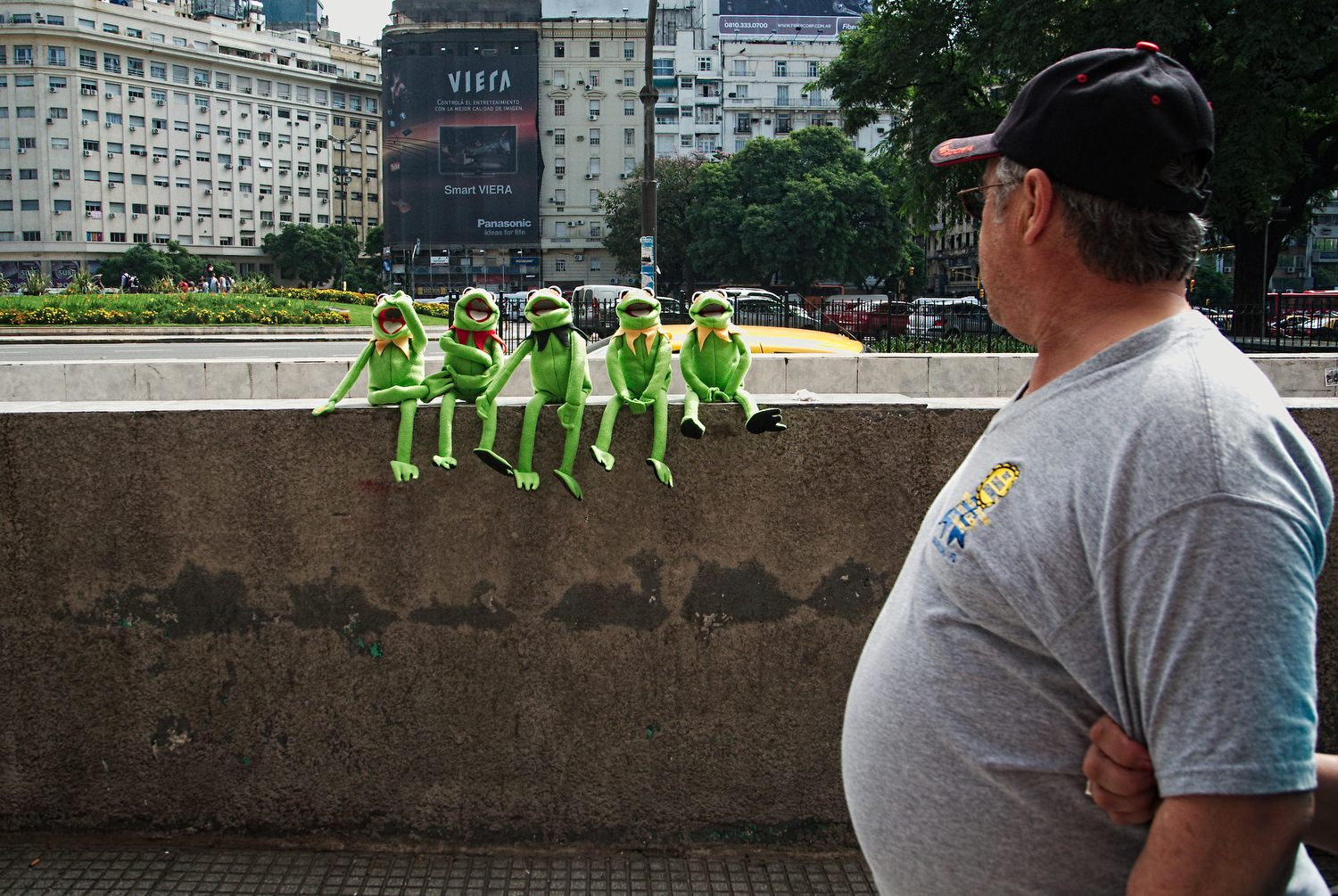
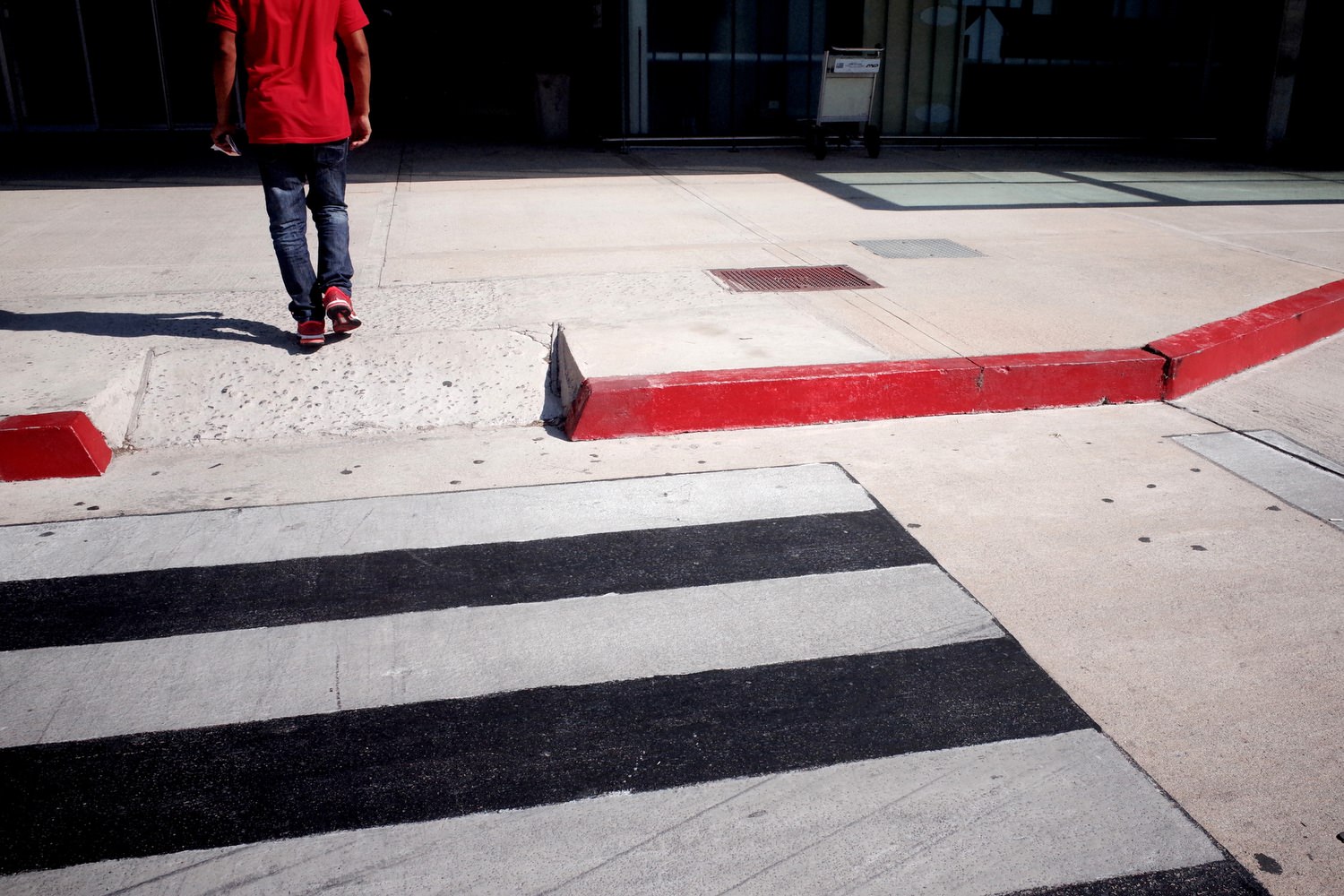
“But when it comes to taking a photo, what matters is the eye, what you see, your intuition that tells you that there is something “there”. And the reaction happens within seconds.”
When you take photos, do you ever have a theme/project in mind?
No, never, on the contrary. One of my biggest incentives is not knowing what I am going to shoot. If I did, I wouldn’t do it.
Are there any photographers or artists who inspired you or influenced your way of creating street photography?
I can’t say that they influenced my work from an aesthetical perspective (although I’m not totally sure), but they have motivated me: Saul Leiter, Daido Moriyama, Harry Gruyaert, Fred Herzog, Pentti Sammallahti, Michael Wol, Trent Parke, and many others. When I see their work I feel like running to the street to take photos. They are inspiring.
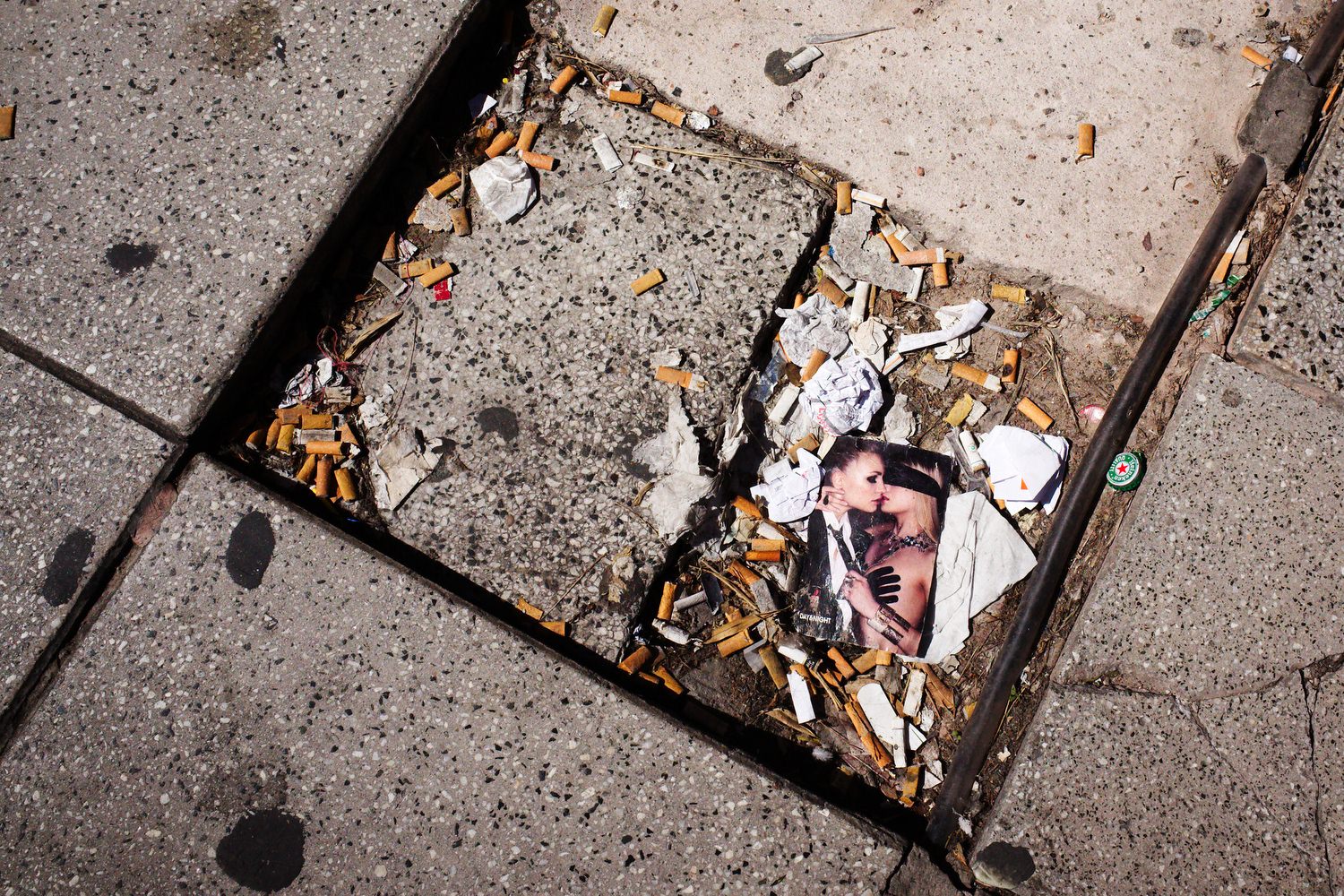
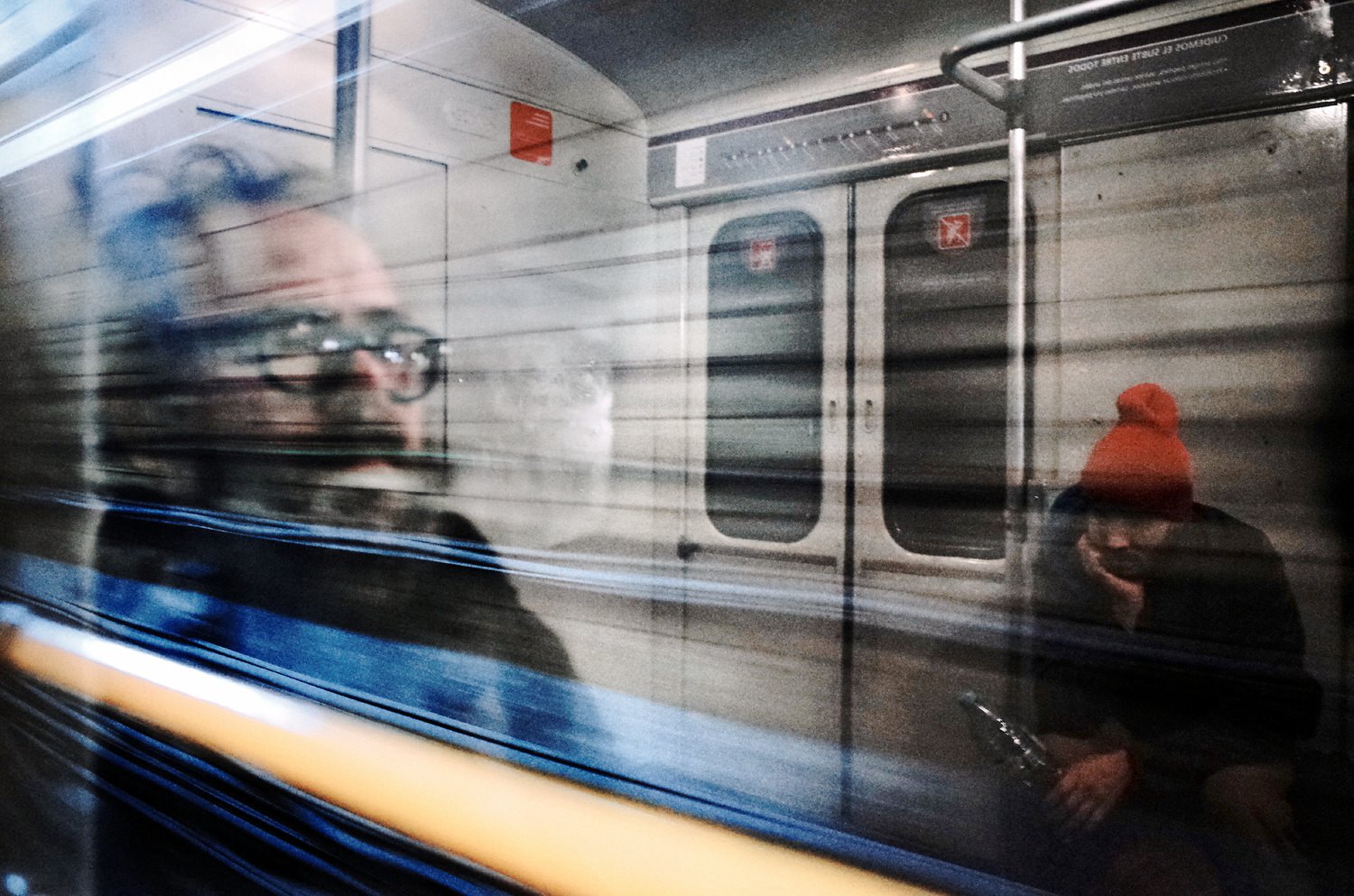
What does art mean for you? And which, do you think, are the opportunities that art can provide to the street photographers who choose to express their identity through that discipline?
I don’t consider myself an artist. To me, the word “artist” includes a positive value judgment and I’m not arrogant. Many people work on certain artistic disciplines and that doesn’t necessarily make them artists. I leave that definition to others and I use it when I refer to others. For example, the photographers I mentioned before are artists because of their capacity to move me. I guess that makes someone an artist.
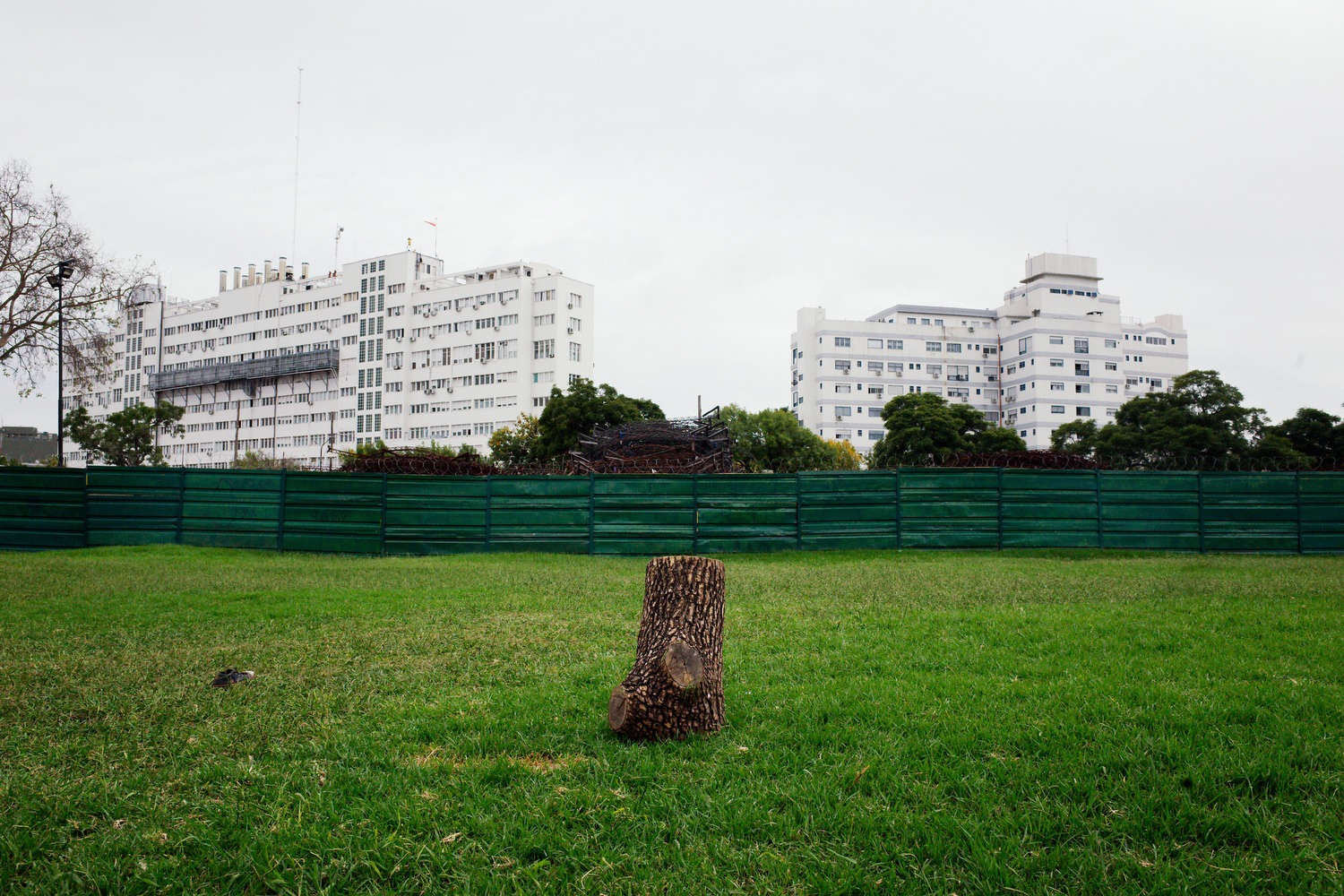
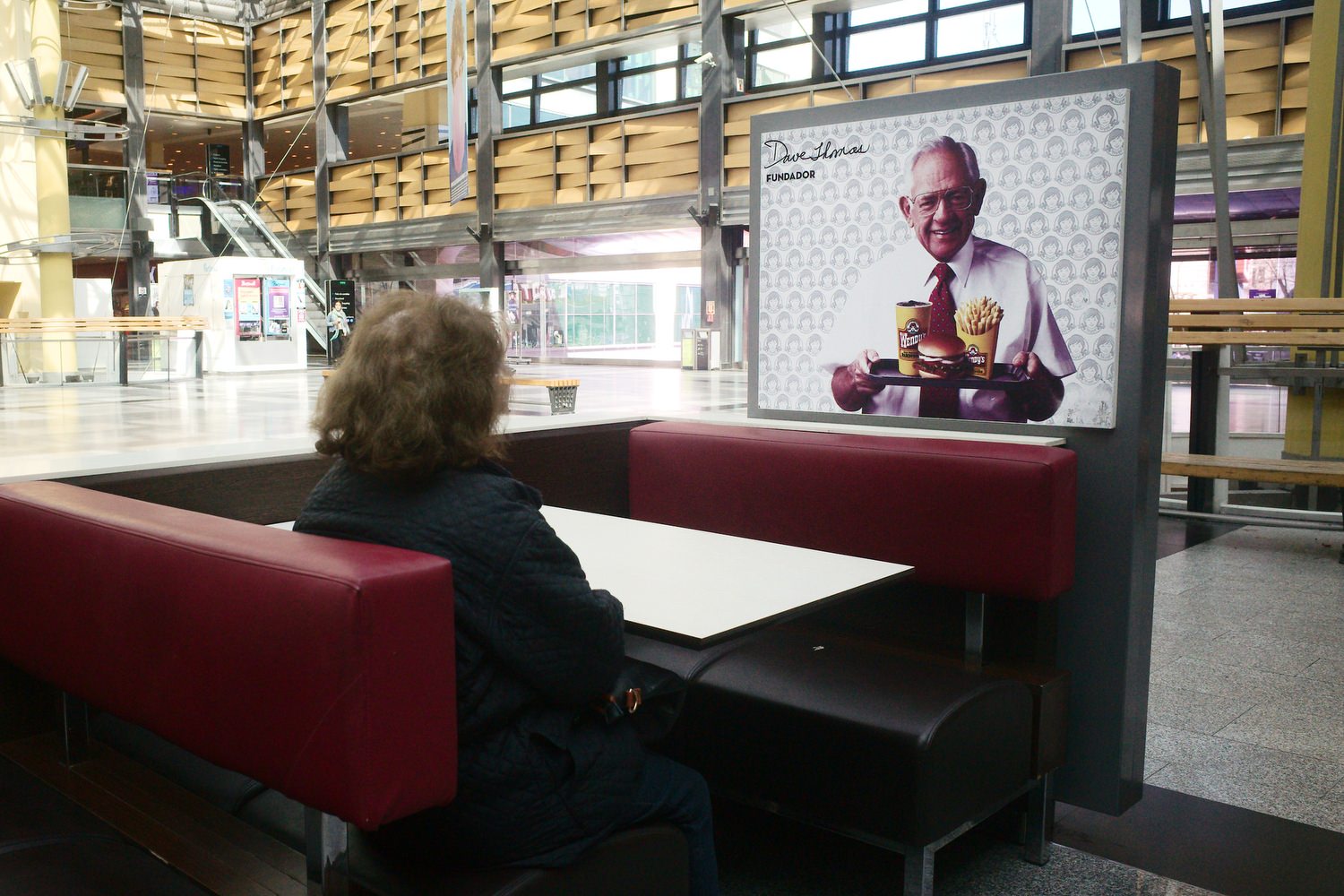
Are you currently working on any project?
No. As I said before, I never have anything in mind. I like to go out, walk and take photos.
Which are your favorite photography books?
To be honest, I only have six or seven photography books. Probably my favorite one is “Street Photography Now” because it made me discover a new world.
What advice would you give to someone who is starting to do street photography?
My advice would be: go out and take photographs. Do the photos you enjoy without thinking too much about other people’s opinions. Because that’s what it is about, having fun. And finding a little freedom in the course of your life.
Thank you!
I thank you.
OVA HAMER BIOGRAPHY
Argentine photographer living in Buenos Aires. Went into photography in 2009 and developed a passion for it. His work is primarily a result of a fascination for the environments that are often overlooked in everyday life. He uses his photography as a way to turn locations and situations from the ‘ordinary’, into the significant and – in some way – beautiful.
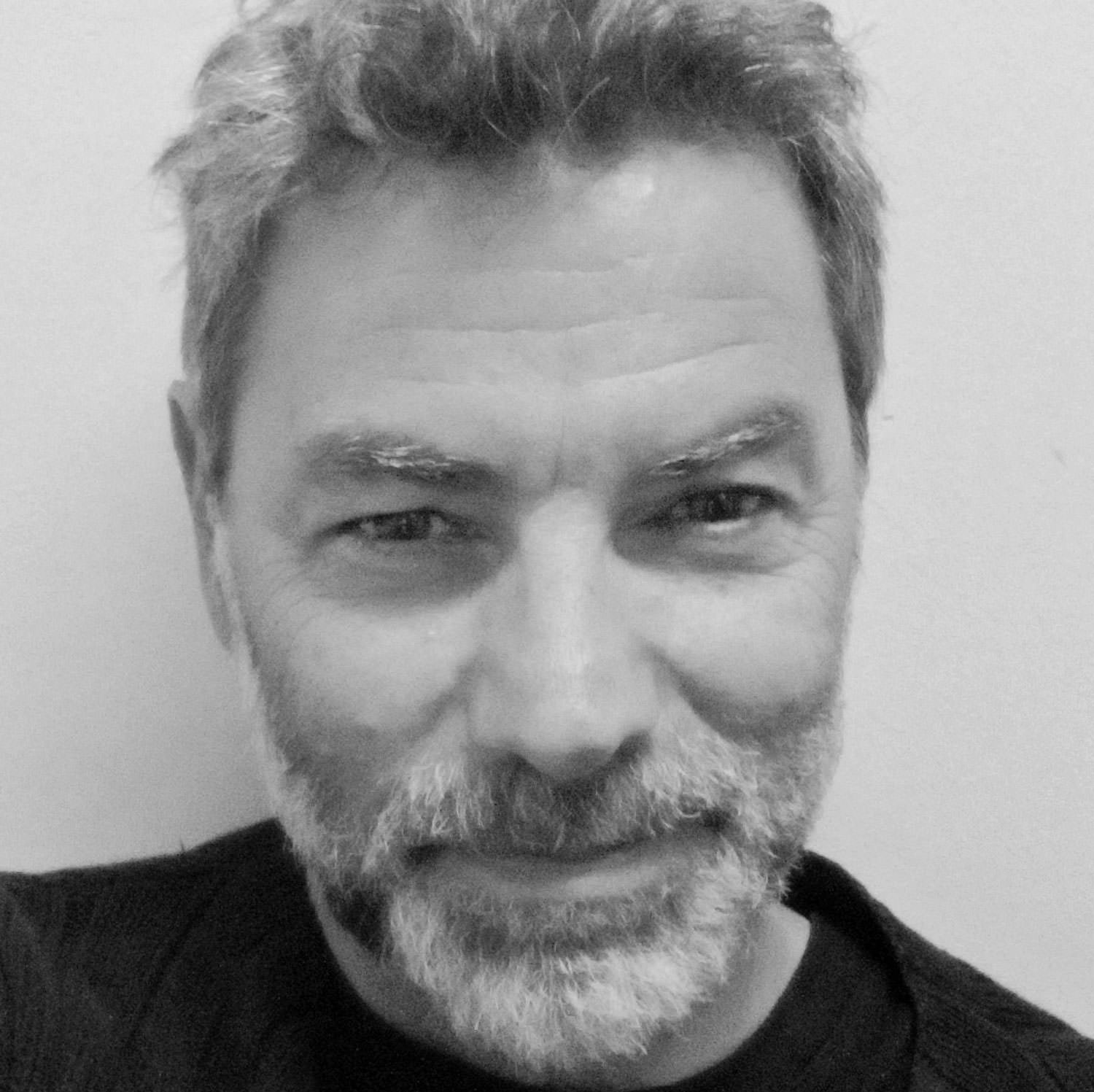
Ova Hamer Links:
Website: https://www.ovahamer.com
Instagram: https://www.instagram.com/ovahamer
Facebook: https://www.facebook.com/ova.hamer

